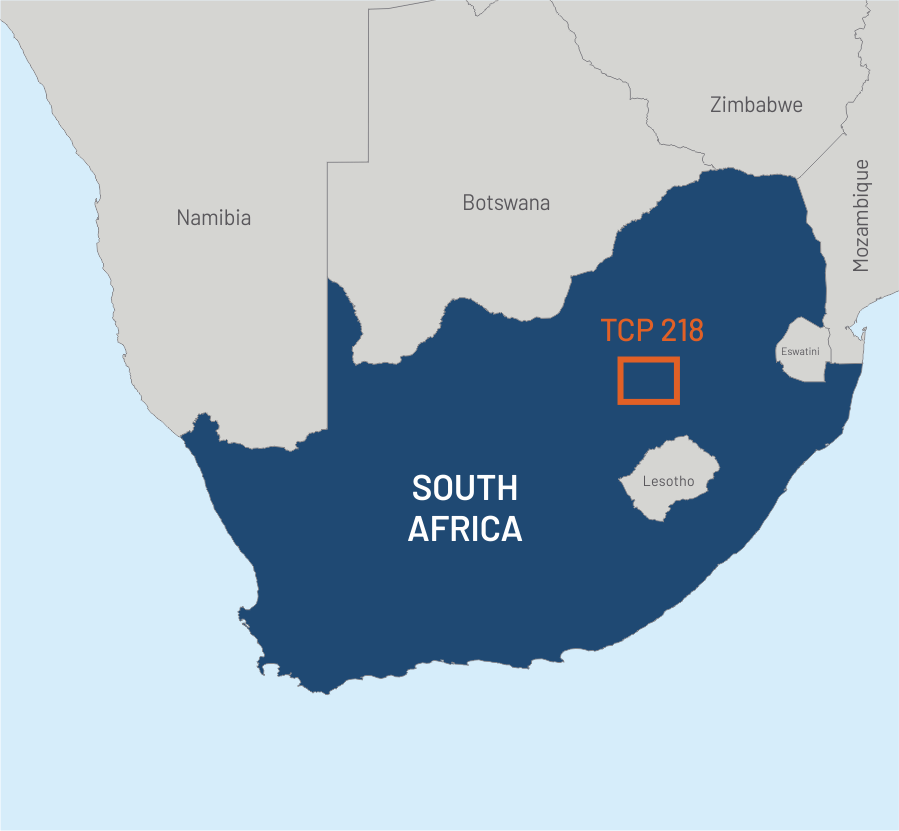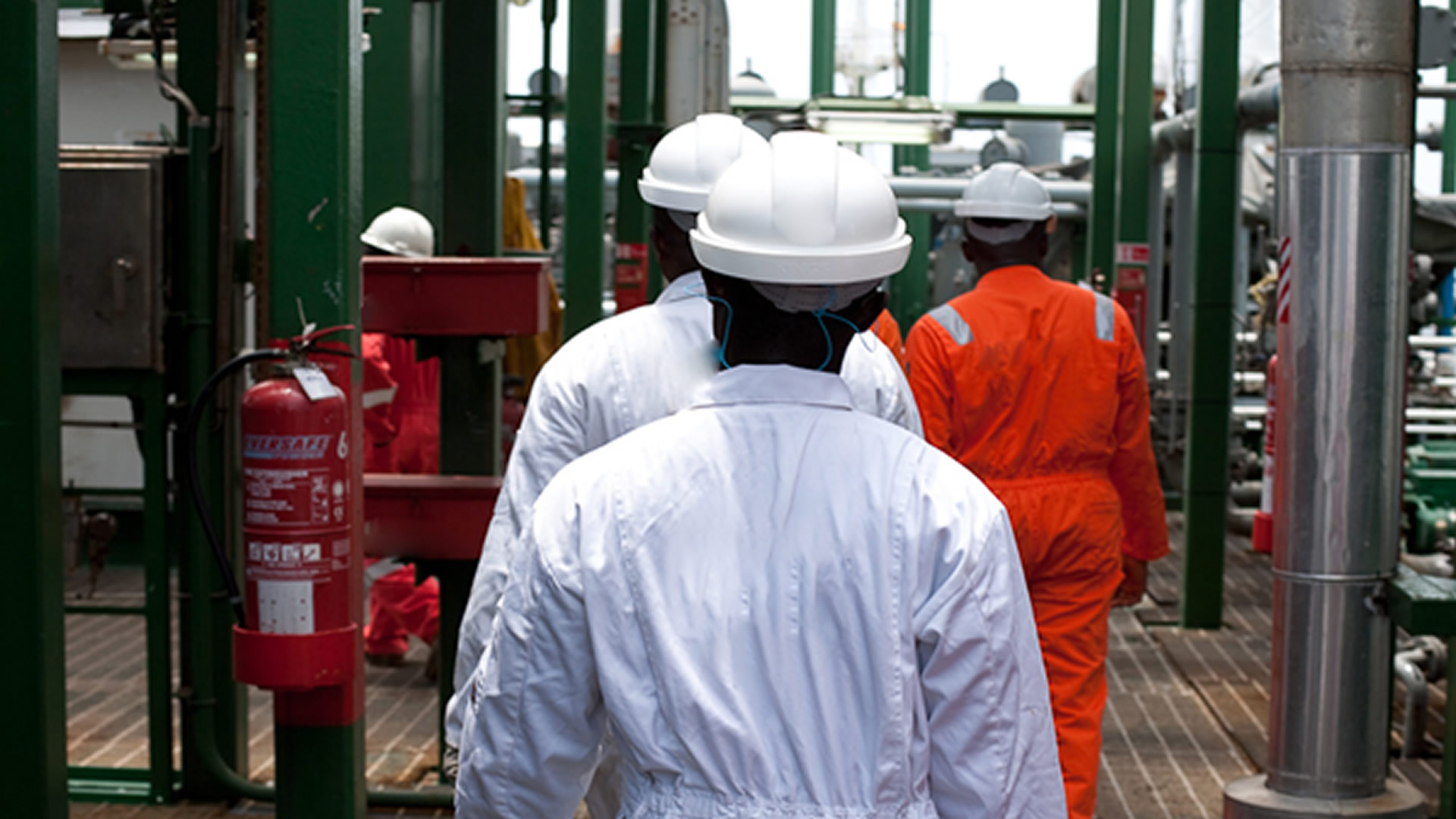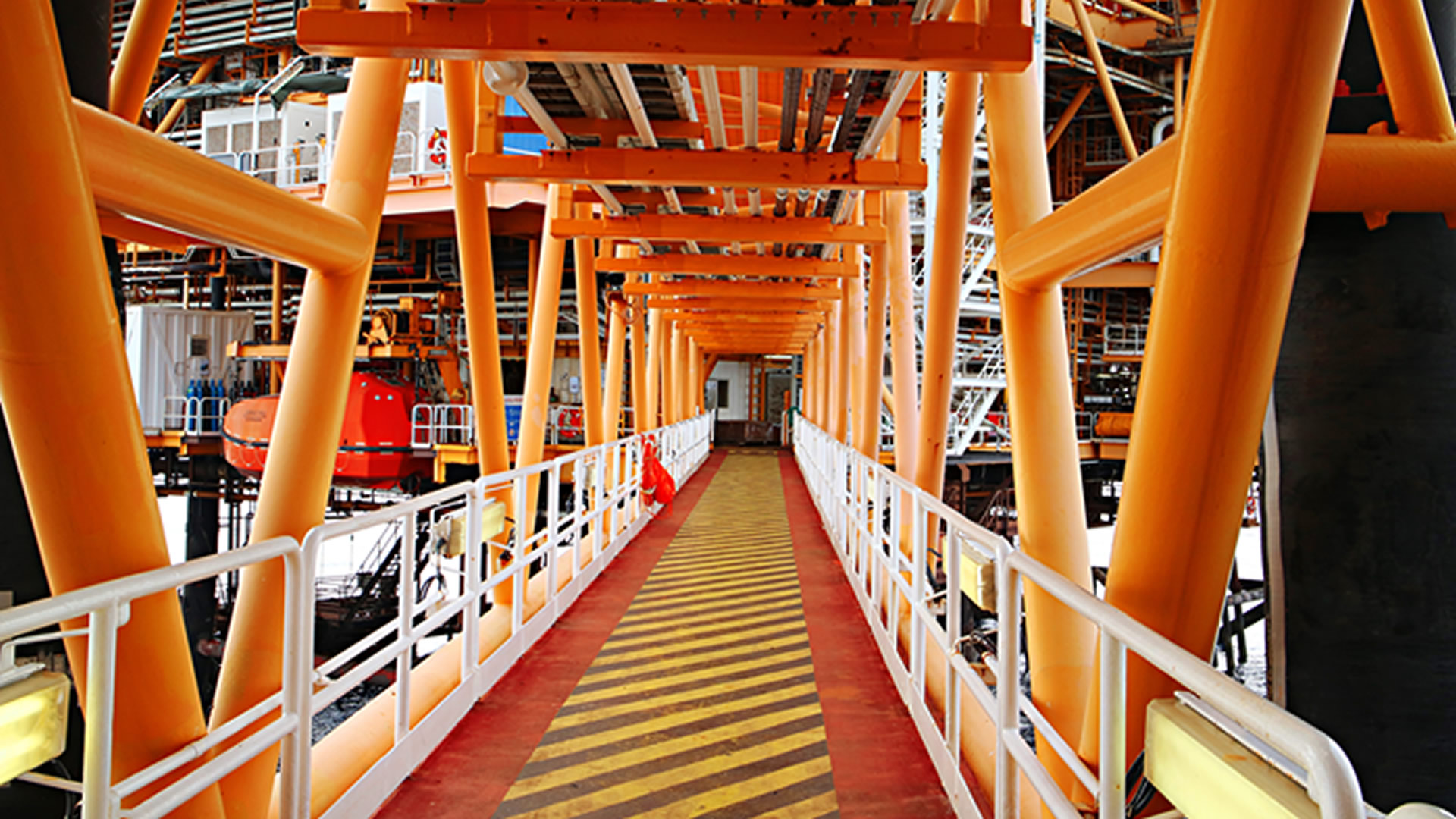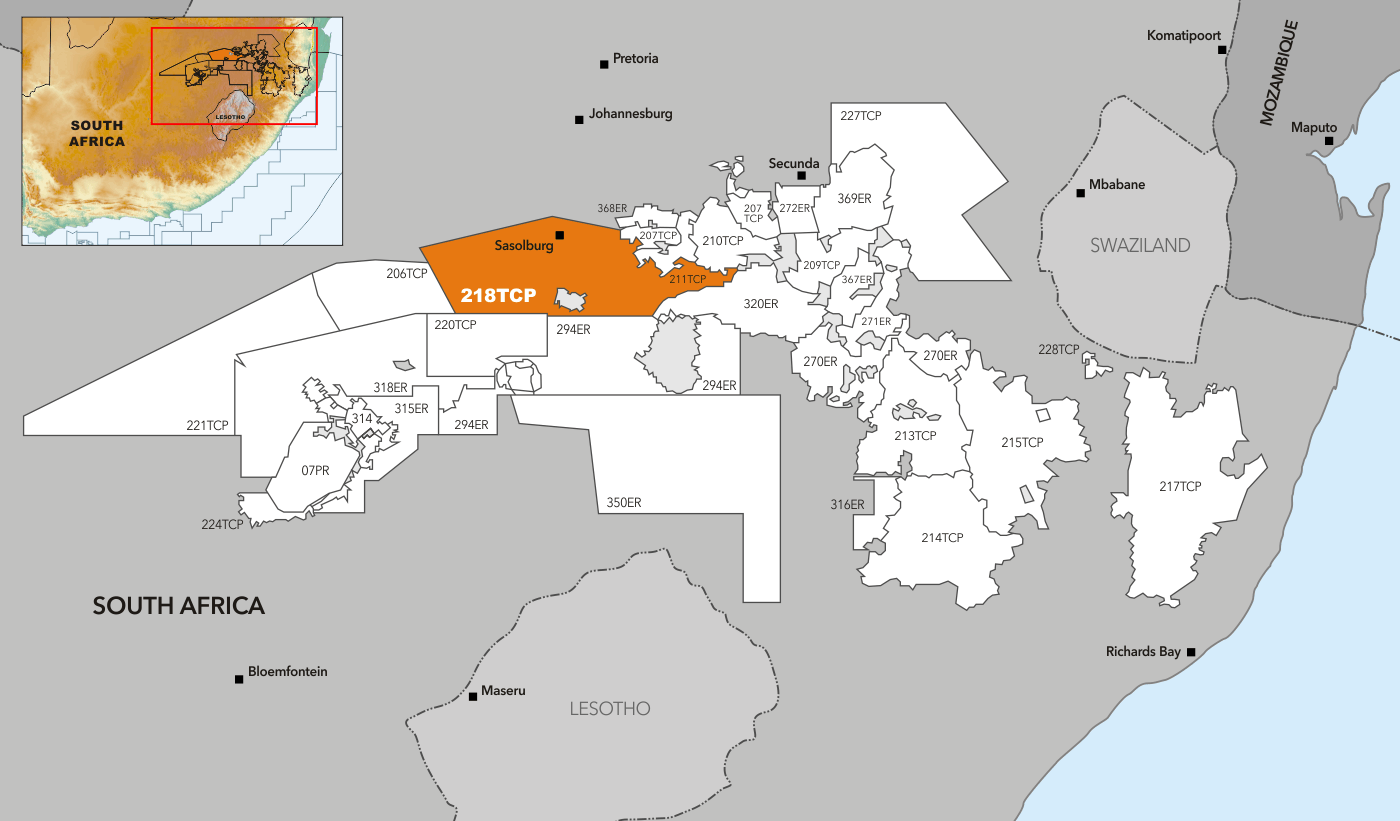Other pages in section

South Africa has a high dependency on coal fired power generation and a growing, energy hungry, population. Persistent power outages drive the need for reliable, affordable and clean energy solutions. Domestic natural gas supply projects in proximity to major demand centres can be key to addressing these energy challenges. High concentrations of Helium have also identified South Africa as a potential major supply source to meet increasing global demand of this scarce and valuable commodity.
TCP 218
In August 2022 Panoro was awarded a 100% interest in Technical Co-operation Permit (“TCP”) 218 located onshore northern Free State province, South Africa. TCP 218 covers a surface area of approximately 6,608 Km2 in the highly prospective Northern Karoo Basin which has a proven working natural gas and Helium system with nearby analogues including the producing Virginia gas field (operated by Renergen) and the Smaldeel gas field.
The TCP award is for a period of 12 months during which time Panoro has exclusive rights to undertake desktop studies of existing data sources and field work in order to evaluate the prospectivity of the permit area, after which the Company will have the option to apply for an Exploration Right covering the permit area. This represents a ground-floor entry at minimal cost.
Helium opportunity
Some of the highest global concentrations of Helium have been recorded in gas wells and boreholes in the North Karoo Basin. Helium concentrations of two to four per cent are common with concentrations in excess of 20 per cent recorded. While a by product of natural gas production, Panoro believes that the Helium potential of TCP 218 offers an additional outright commercial opportunity that can be both scalable and de-linked from hydrocarbon prices. Numerous strategic industries including the global semiconductor, fibre optic, medical imaging and aerospace industries are irreversibly dependent on a stable and secure supply of Helium. With the US strategic Helium reserve depleting in recent years the need for less dominant alternative reliable supply from geopolitically low risk sources is intensifying. Panoro believes that South Africa has the potential to become a strategically important source of Helium supply to the global market.
Natural Gas Opportunity
The proven play concept Panoro intends to evaluate is biogenic gas generated by groundwater circulating through large faults and contacting bacteria, meaning the natural gas is generated through a continual process and therefore is renewable. The Company also intends to evaluate the potential for conventional oil and gas prospectivity in the TCP area.
Panoro believes that favourable dynamics exist for domestic gas opportunities in South Africa where power outages are persistent. In the power sector legislation has been amended to allow for up to 50MW of power generation capacity to be installed and operated without a full generation license. In the event that commercial quantities of natural gas are proved on TCP 218 its close proximity to some of South Africa’s major demand centres lends itself as a potential supply source for domestic gas to power projects. South Africa presently has a high dependency on coal which accounts for approximately 70 per cent of energy by source in the country. Any new gas supply to underpin domestic power generation projects can therefore help displace coal as the dominant energy source.







